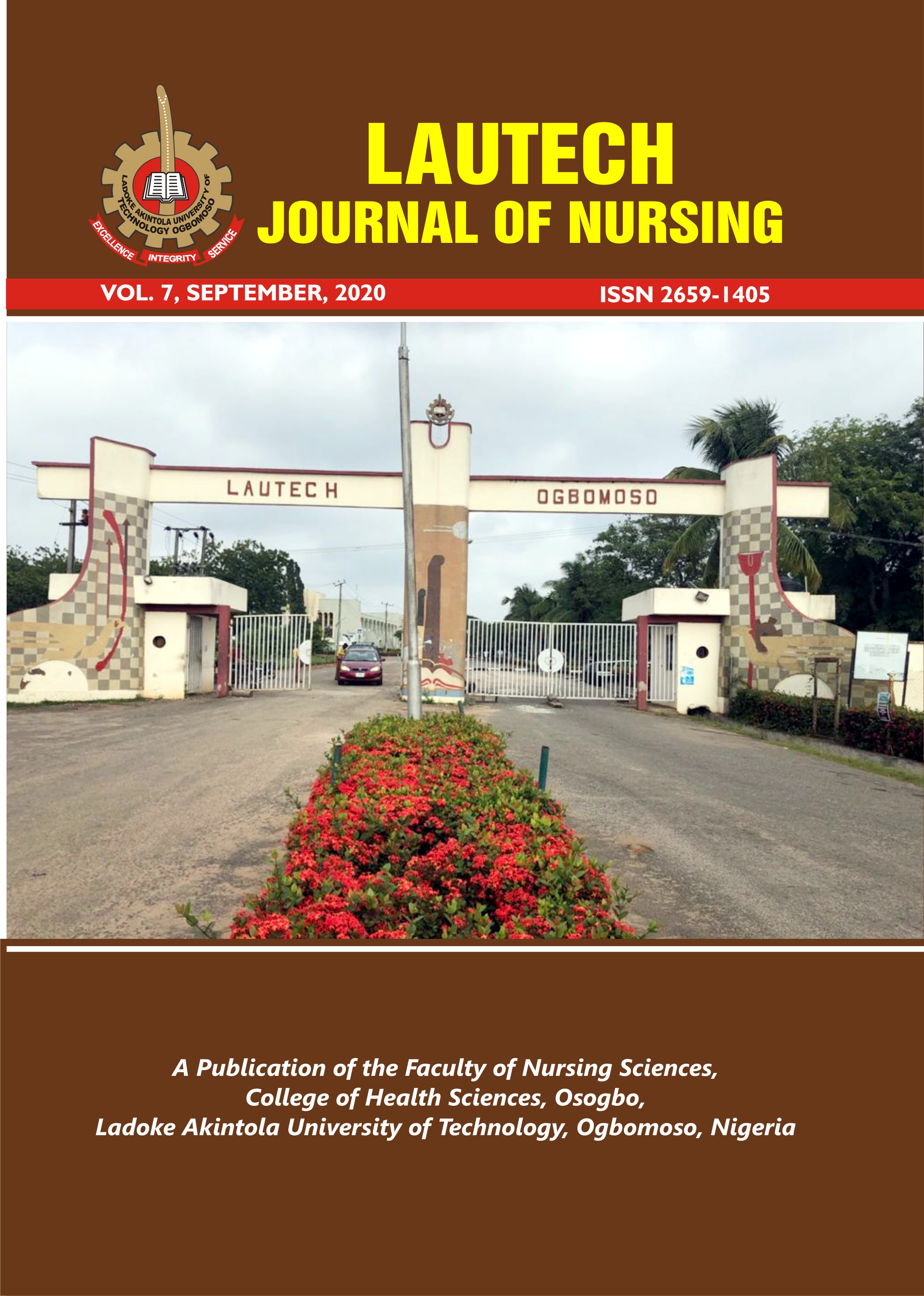The increasing global prevalence of diabetes
has become a public health issue. Therapeutic
non-compliance leads to treatment failure thus
making management of diabetes serious
concerns for clients and care providers. The
study examines factors affecting the noncompliance to treatment regimens among
diabetic patients attending medical out-patient
department using Ondo Specialist Hospital,
Akure, South-Western Nigeria as case study.
Descriptive cross-sectional design was used
for this study. One hundred (100) diabetic
patients were selected using the random
sampling technique. Data was collected using
questionnaire with a reliability coefficient of
0.81. Data collected were analyzed using
Statistical Package for Social Sciences (SPSS)
version 21 presented in frequencies,
percentages and tables. Test of association was
utilized with P = 0.05 level of significance. The
result of this study shows that majority of
participant are within the age range of 60-80
years with mean age being 70 years. Standard
deviation is ±17.42, majority of the
respondents are female and are married with
tertiary education. Majority of the respondents
are Christians and Yoruba. The study reveals
that the respondents are knowledgeable about
diabetes mellitus and the factors affecting noncompliance to therapeutic regimen by diabetic
patients are lack of support from family/
relatives, inability to replace drugs due to
financial problem, replacing strips due to cost attitude of health workers, financial
constraints in meeting up with hospital
appointment and cost of maintaining diet. We
therefore suggest that governmental and nongovernmental organizations should support
clients managing patients with this
illness/condition to promote compliance.
- Iwaola | Olufunke | Mercy | olufunkeiwalola@yahoo.com | 07036138033, Olatunde | Oluwatoyin | Esther | lovjoy88@gmail.com | 08169501876, Adetunji | Oluseye | Adetayo | oluseye.adetunji@adelekeuniversity.edu.ng | 08063239911, Adamolekun | Modupe | Motunrayo | dupeekundayo82@gmail.com | 07069703404, Ogbeye | Gbemisola | Bolanle | gbemisolaogbeye@gmail.com | 08033663305, Adeola | Oluwakemi | Elizabeth | adekemoo11@gmail.com | 07030831923
- Non-Compliance, Treatment Regime, Diabetic patient, Diabetes mellitus
- FACTORS AFFECTING NON-COMPLIANCE TO TREATMENT REGIMEN AMONG DIABETIC PATIENTS IN A SECONDARY HEALTH FACILITY IN ONDO STATE, NIGERIA


